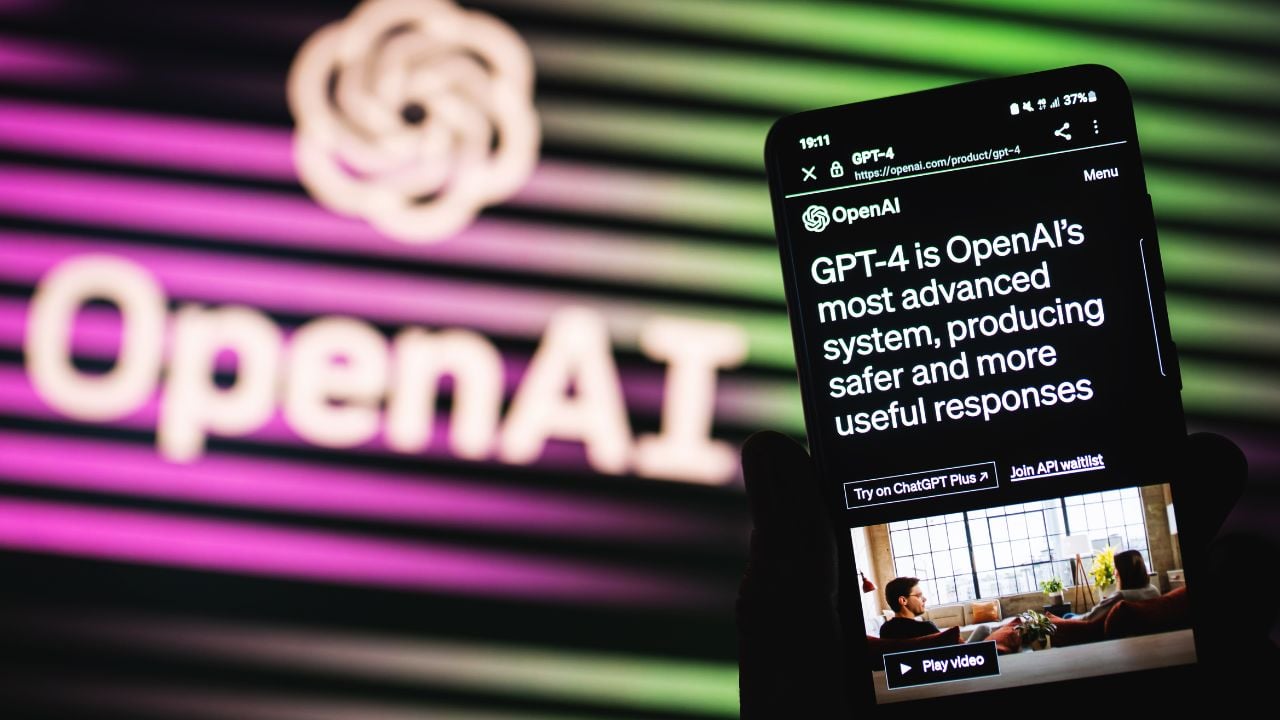FTC Launches Probe Into OpenAI: Implications For AI Development And Use

Table of Contents
Understanding the FTC's Concerns Regarding OpenAI
The FTC, tasked with protecting consumers from unfair or deceptive business practices, has a mandate encompassing data privacy and algorithmic fairness. Their investigation into OpenAI likely stems from concerns surrounding several key areas:
-
Data Privacy: OpenAI's large language models (LLMs) are trained on massive datasets, raising questions about the origin and handling of this data. Concerns include the potential for unauthorized collection or use of personal information, violating consumer privacy rights. The FTC may be investigating whether OpenAI obtained and utilized data in compliance with existing regulations like CCPA and GDPR.
-
Algorithmic Bias: AI systems, if trained on biased data, can perpetuate and amplify existing societal biases. The FTC may be scrutinizing OpenAI's models for potential biases that could lead to discriminatory outcomes in areas like lending, hiring, or even criminal justice. Ensuring fairness and mitigating bias are critical aspects of responsible AI development.
-
Potential for Consumer Harm: The widespread adoption of AI technologies brings with it the potential for various forms of consumer harm. Misinformation spread by AI-generated content, inaccuracies in AI-powered decision-making systems, and the potential for manipulation are all areas of concern that the FTC might be investigating.
The FTC's investigation into OpenAI is not just about OpenAI itself; it sets a precedent for the entire AI industry, highlighting the growing importance of responsible AI practices. The agency's actions will likely influence how other companies develop and deploy their AI systems.
Impact on AI Development Practices
The FTC's investigation into OpenAI will undoubtedly influence the practices of AI developers globally. We can expect to see several key changes:
-
Increased Focus on Data Security and Privacy: AI companies will need to bolster their data security measures and implement rigorous data privacy protocols to ensure compliance with existing and future regulations. This includes stricter data collection practices, enhanced data anonymization techniques, and transparent data usage policies.
-
Improved Algorithm Design and Model Training: There will be a greater emphasis on developing algorithms that are robust, unbiased, and less susceptible to manipulation. This will involve investing in techniques to detect and mitigate bias in training data and incorporating fairness metrics into model evaluation.
-
Ethical AI Development and Responsible AI Practices: The investigation underscores the crucial need for ethical AI development. Companies will need to prioritize responsible AI practices, integrating ethical considerations into every stage of the AI lifecycle, from data acquisition to deployment. This may involve establishing ethical review boards and implementing robust testing and validation procedures.
-
Higher Compliance Costs: Meeting the increased regulatory scrutiny will inevitably result in higher development and compliance costs for AI companies. This may impact smaller companies more significantly, potentially leading to a more consolidated AI landscape.
Implications for AI Deployment and Use
The FTC's investigation into OpenAI will not only affect AI development but also its deployment and use across various sectors:
-
Limitations on Data Collection and Use: Expect stricter limitations on the types and amounts of data that can be collected and used for AI development. This could limit the capabilities of certain AI models, but it also ensures greater protection of user privacy.
-
Changes in AI-Powered Products and Services: AI-powered products and services may undergo significant changes to ensure compliance with regulations and address concerns regarding bias and transparency. This could lead to more explainable AI systems and increased user control over data usage.
-
Increased Transparency and Accountability: The demand for transparency and accountability in AI systems will likely increase. Companies will need to provide more information about how their AI systems work, what data they use, and how they mitigate potential risks. This will contribute to building greater trust in AI technologies. Effective AI risk management will become paramount.
The Broader Context of AI Regulation
The OpenAI investigation is part of a larger global trend towards increased AI regulation. The EU AI Act, for example, represents a significant step toward establishing a comprehensive regulatory framework for AI. The FTC's actions will likely influence the development of similar regulatory frameworks worldwide, leading to:
-
More Standardized and Comprehensive Regulatory Frameworks: The investigation could accelerate the development of internationally recognized standards and best practices for AI development and deployment.
-
Increased Global Collaboration on AI Governance: Governments and international organizations will need to collaborate more closely to establish effective mechanisms for AI governance and oversight.
-
Challenges in Regulating Rapidly Evolving Technologies: Regulating rapidly evolving AI technologies presents a considerable challenge. Regulatory frameworks need to be adaptable enough to keep pace with technological advancements while remaining effective in protecting consumers and society.
Conclusion: Navigating the Future of AI in Light of the FTC's Probe
The FTC's probe into OpenAI represents a significant turning point for the AI industry. It underscores the growing need for responsible AI development and deployment, emphasizing the importance of data privacy, algorithmic fairness, and consumer protection. The implications are far-reaching, impacting AI development practices, deployment across various sectors, and the broader regulatory landscape. The investigation highlights the need for proactive measures to ensure that AI technologies are developed and used ethically and responsibly. Stay informed about developments in AI regulation and the FTC's ongoing investigation into OpenAI – monitoring the "FTC's OpenAI probe" and "OpenAI and FTC investigation" will be crucial for navigating the future of AI. For more information, refer to the official FTC website and OpenAI's blog.

Featured Posts
-
 Geen Stijl Definitie Van Een Zware Auto Volgens De Media
May 02, 2025
Geen Stijl Definitie Van Een Zware Auto Volgens De Media
May 02, 2025 -
 Little Tahiti Italy Your Guide To Pristine Beaches
May 02, 2025
Little Tahiti Italy Your Guide To Pristine Beaches
May 02, 2025 -
 Loyle Carner To Play Dublins 3 Arena
May 02, 2025
Loyle Carner To Play Dublins 3 Arena
May 02, 2025 -
 Kocaeli 1 Mayis Arbede Ayrintilari Ve Olay Gelisimi
May 02, 2025
Kocaeli 1 Mayis Arbede Ayrintilari Ve Olay Gelisimi
May 02, 2025 -
 Tragjedi Ne Ceki Sulm Me Thike Ne Qender Tregtare Dy Viktima
May 02, 2025
Tragjedi Ne Ceki Sulm Me Thike Ne Qender Tregtare Dy Viktima
May 02, 2025
